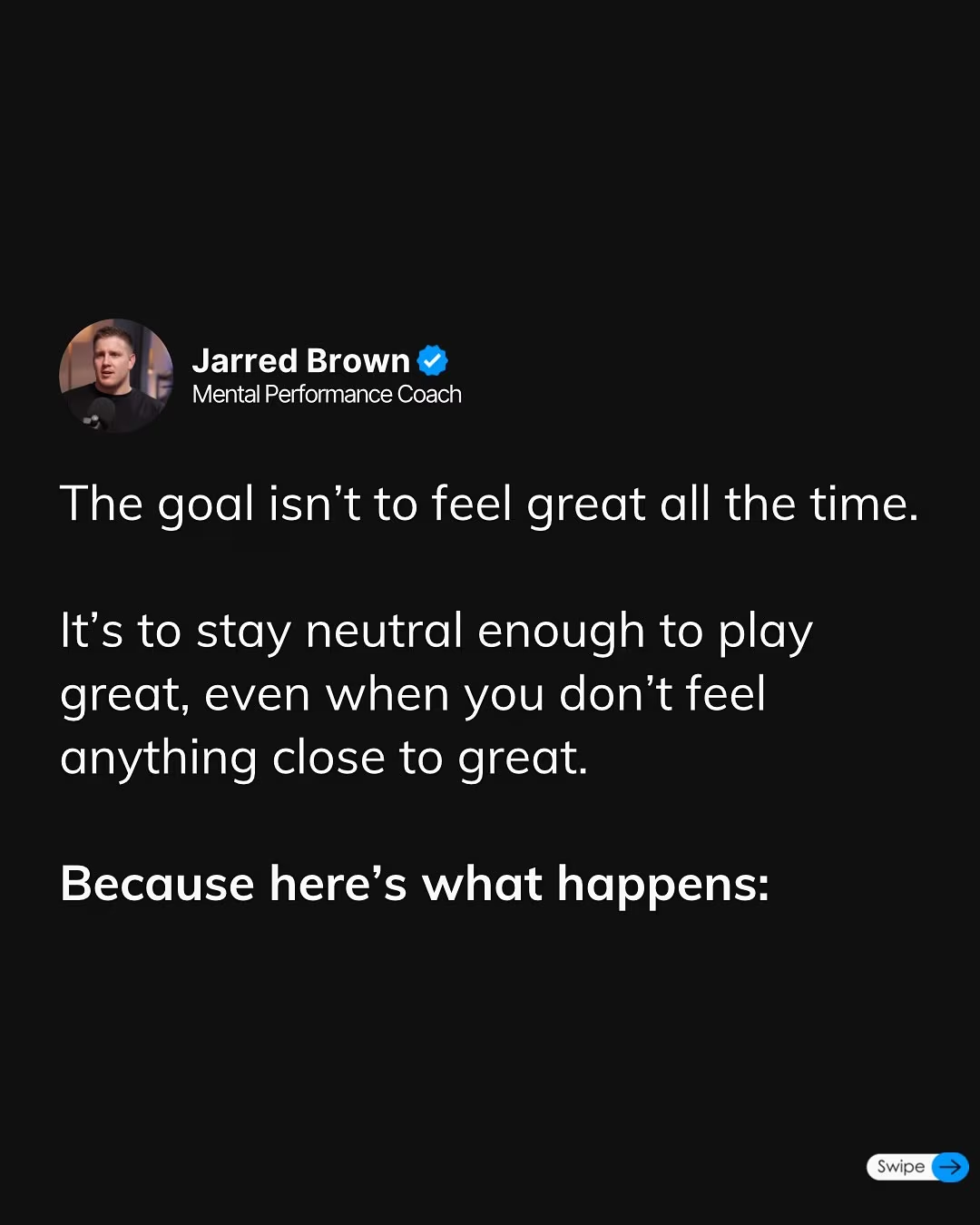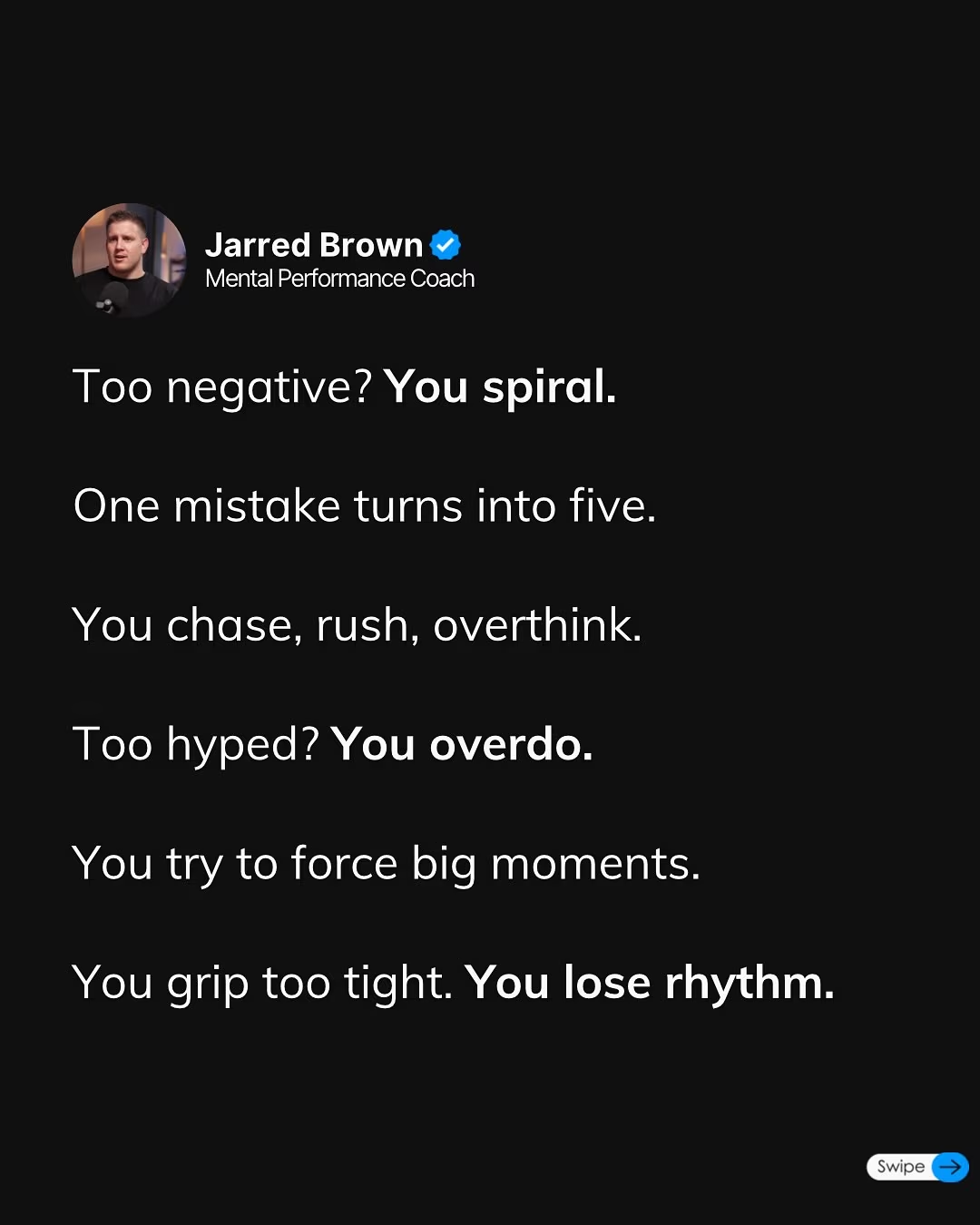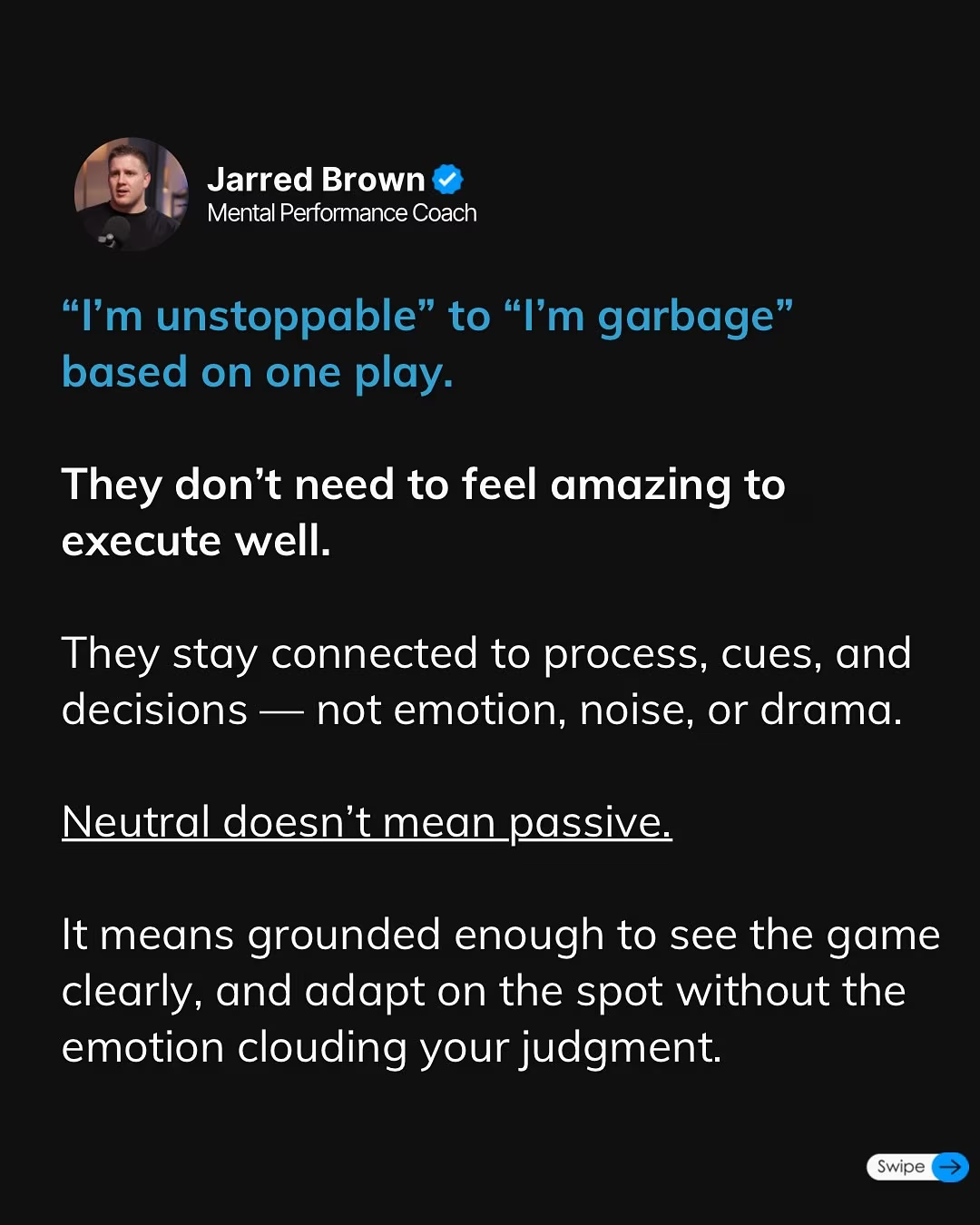Neutral Mindset: The Key To Athletic Consistency
Neutrality fuels triumph: athletes excel when their mind is always clear, focused, steady.

Image: Instagram
In competitive sports, the power of a steady mindset can make or break an athlete’s performance. Mental skills coach Jarred Brown is challenging the popular notion that athletes must chase constant positivity. Instead, his message is clear: the secret to consistent success lies in maintaining a neutral state of mind.
The Power Of Neutrality
Athletes often assume that feeling upbeat and energetic is the only path to success. Many believe that chasing a high will translate into better performance on the field. However, Brown explains that swinging between emotional extremes only leads to imbalance. In his own words, the goal isn’t to feel amazing all the time. It’s about being neutral enough to play great even when you aren’t riding a wave of positivity.
Brown’s insight is rooted in years of coaching professionals who have experienced the pitfalls of overreliance on fleeting emotions. He explains that when athletes are overly hyped, they risk forcing performance, which disrupts their natural rhythm. Conversely, dwelling in negativity can make a single mistake spiral into a cascade of further errors. The solution, according to Brown, lies in finding that mental middle ground—a state where fury, anxiety, or euphoria do not cloud judgment.
Staying Grounded Under Pressure
The mental approach promoted by Brown emphasizes clarity and presence. He stresses that athletes should focus on their process, cues, and the tactical decisions that unfold in real-time rather than letting emotion dictate their actions. “Neutral is where your power lives,” he asserts, drawing attention to the clarity that provides a steady heartbeat and a composed performance even in high-pressure moments.
In practice, this means recognizing that emotions are part of the game, but they should never steer the course of an athlete’s performance. For instance, when an athlete misses a critical play, it is easy to swing from a sentiment of ‘I’m unstoppable’ to feelings of inadequacy. Brown advises that instead of oscillating wildly, athletes should anchor themselves in a neutral state that promotes a clear headspace. This mental balance not only prevents an overreaction to mistakes but also fosters quicker recovery and sharper focus in subsequent moments.
Neutrality And The Process Of Success
Brown’s philosophy is echoed in his one-on-one coaching sessions. Drawing from his extensive experience, he recounts scenarios where athletes attained a turnaround by removing mental clutter. In one memorable session, a top competitor talked about the “emotional noise” that was slowly diminishing his edge. By clearing space in his schedule and, more importantly, in his mind, the athlete rediscovered his ability to perform consistently. This process of mental decluttering is all about turning attention away from highs and lows and directing it towards a methodical and grounded approach.
The concept isn’t about suppressing emotions or pretending that pressure doesn’t exist—it’s about not letting those emotions drive the decision-making process. Brown explains that neutral athletes do not ignore their feelings. Instead, they experience their emotions without letting them commandeer their actions on the field. They remain connected to what truly matters: the strategies, cues, and built-in routines that are the building blocks of performance.
Integrating A Neutral Mindset Into Daily Training
Brown’s approach extends beyond game-day tactics. It involves developing daily routines that nurture a consistent mental state. He often advises athletes to incorporate practices such as meditation, journaling, and controlled breathing into their mornings. These techniques help establish a foundation of neutrality, ensuring that when competition time comes, the athlete’s mind is already tuned to a state of calm focus.
Numerous athletes have reported that after shifting their focus from chasing a constant high to simply being present, they experienced a noticeable improvement in their consistency. The method isn’t flashy and may lack the instant gratification of heightened emotion, but its benefits are undeniable over the course of a season. Athletes learn to trust their process and accept the natural ebb and flow of performance without being derailed by temporary emotions.
Brown’s teachings remind us that while talent and physical ability are undeniably important, the mental game can be the ultimate differentiator in competitive sports. By mastering neutrality, athletes are not only better positioned to respond to the unpredictable nature of play but also to harness a deeper sense of focus and resilience.
As the landscape of sports continues to evolve, mental coaches like Jarred Brown are reshaping our understanding of peak performance. His message is a powerful reminder that the most consistent athletes aren’t those who ride constant highs—they are the ones who stay grounded, no matter what storm of emotions passes by.
This approach to mental preparation is gaining traction among teams and individual athletes alike. By embracing neutrality, athletes can sidestep the pitfalls of emotional extremes and instead, focus on executing their skills with precision and control. It’s this quiet, steady path that often distinguishes good athletes from great ones.




























